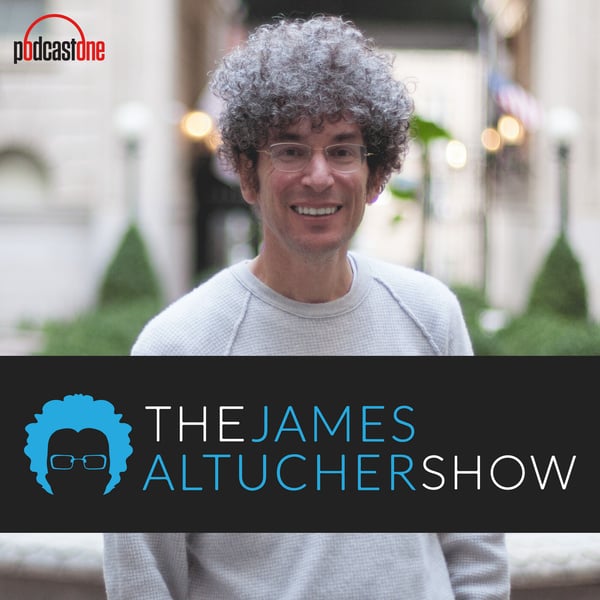590 - How to THINK like an Innovator with Matt Ridley
The James Altucher Show
James Altucher
4.6 • 2.7K Ratings
🗓️ 21 May 2020
⏱️ 68 minutes
🧾️ Download transcript
Summary
Transcript
Click on a timestamp to play from that location
| 0:00.0 | This isn't your average business podcast and he's not your average host. |
| 0:06.6 | This is the James Altiger Show. |
| 0:12.6 | Today on the James Altiger Show. |
| 0:15.8 | I don't know if you call it credential bias or what, but this idea that some people are |
| 0:19.9 | experts when in fact, what we're calling the experts are the scientists and not necessarily |
| 0:25.9 | the inventors. |
| 0:27.0 | We see this with this recent pandemic that, oh, we need to trust the mathematical models |
| 0:31.7 | of the experts and it turns out every single one of those models is wrong, but still every |
| 0:36.4 | step of the way people say, I think I'm going to leave this to the experts. |
| 0:39.8 | Like there's sort of shut down if you are an un credentialed skeptic. |
| 0:44.6 | I think, well, first of all, you have to understand that science and technology involves disagreement. |
| 0:49.9 | You're going to have different people with different ideas about how to interpret data |
| 0:53.2 | and what the data says, et cetera, et cetera. |
| 0:55.4 | And where you get truth is from the clash between ideas. |
| 0:58.9 | That's one important thing. |
| 1:00.4 | But the second thing is, yes, of course, there is such a thing as expertise. |
| 1:04.7 | I'm not here to say I want my bridge that I drive over, built by five-year-olds. |
| 1:11.6 | The fact that the bridge doesn't fall down is because someone has expertise. |
| 1:16.2 | But that doesn't mean that there is such a thing as an expert on the future. |
| 1:22.1 | And I think this is the really important distinction that one needs to make. |
| 1:27.0 | And this is where we're getting into trouble with the modeling of the epidemic at the moment, |
| 1:30.4 | is we're supposing that there are people who are experts at forecasting. |
... |
Please login to see the full transcript.
Disclaimer: The podcast and artwork embedded on this page are from James Altucher, and are the property of its owner and not affiliated with or endorsed by Tapesearch.
Generated transcripts are the property of James Altucher and are distributed freely under the Fair Use doctrine. Transcripts generated by Tapesearch are not guaranteed to be accurate.
Copyright © Tapesearch 2025.

